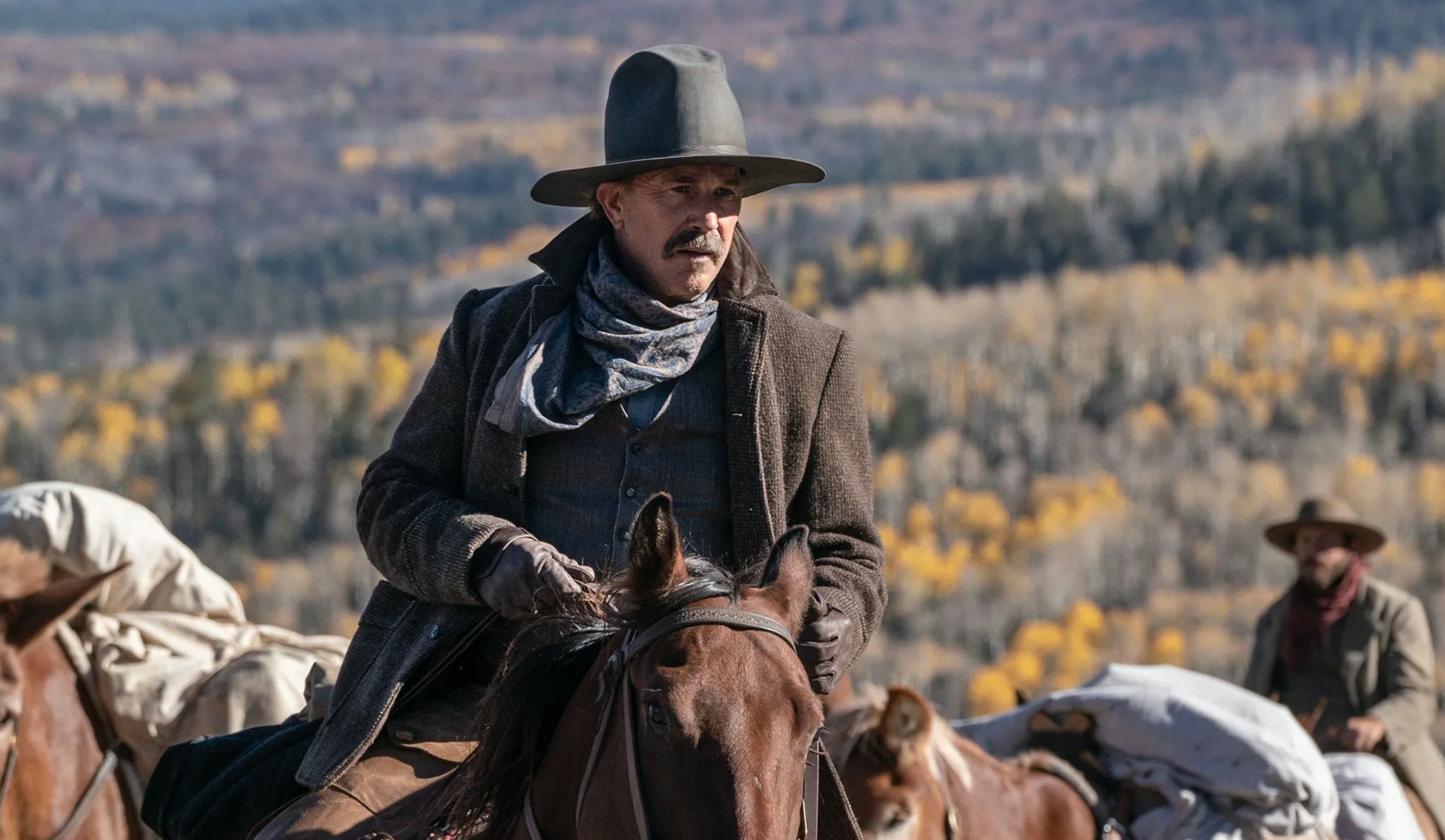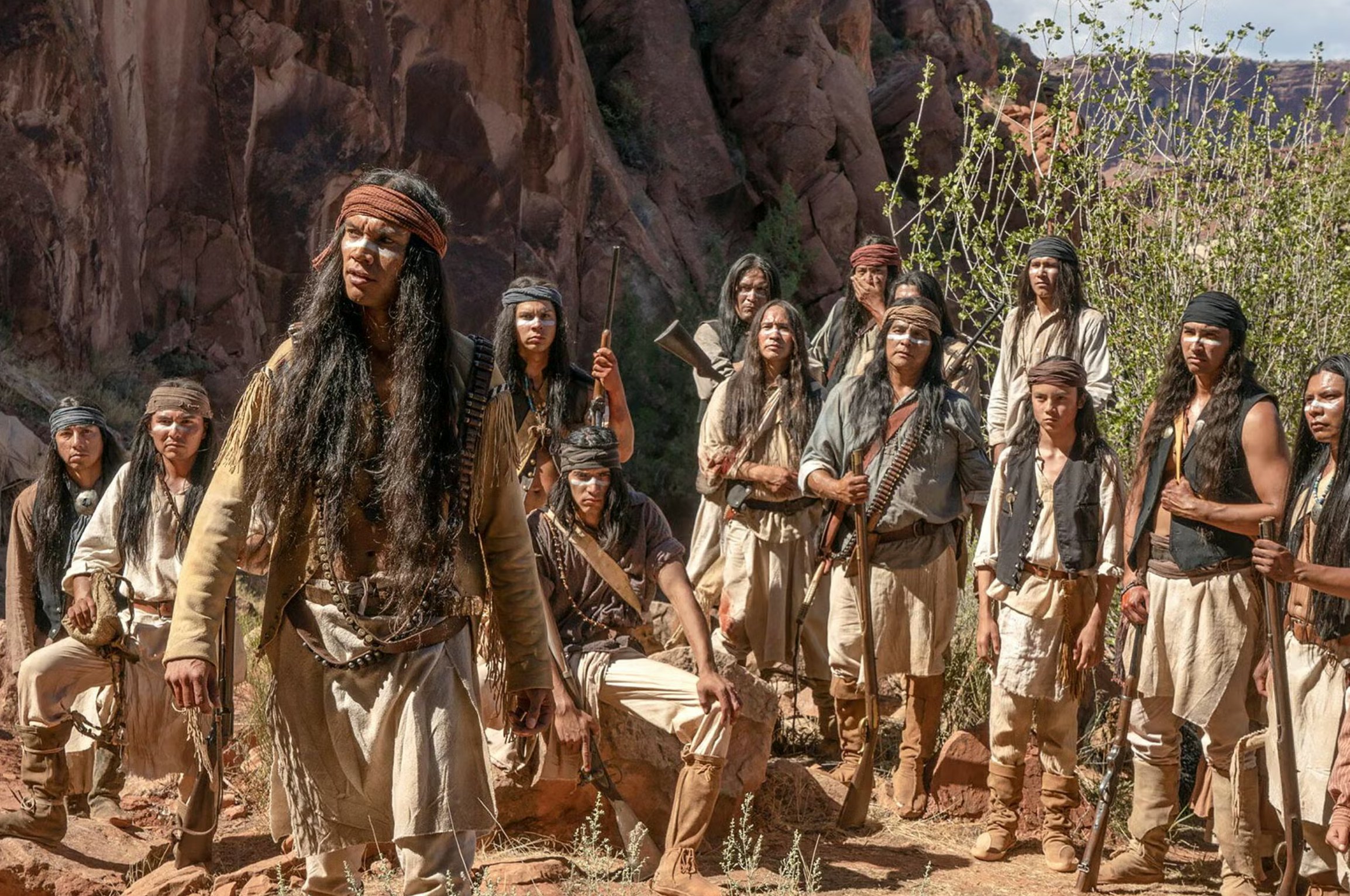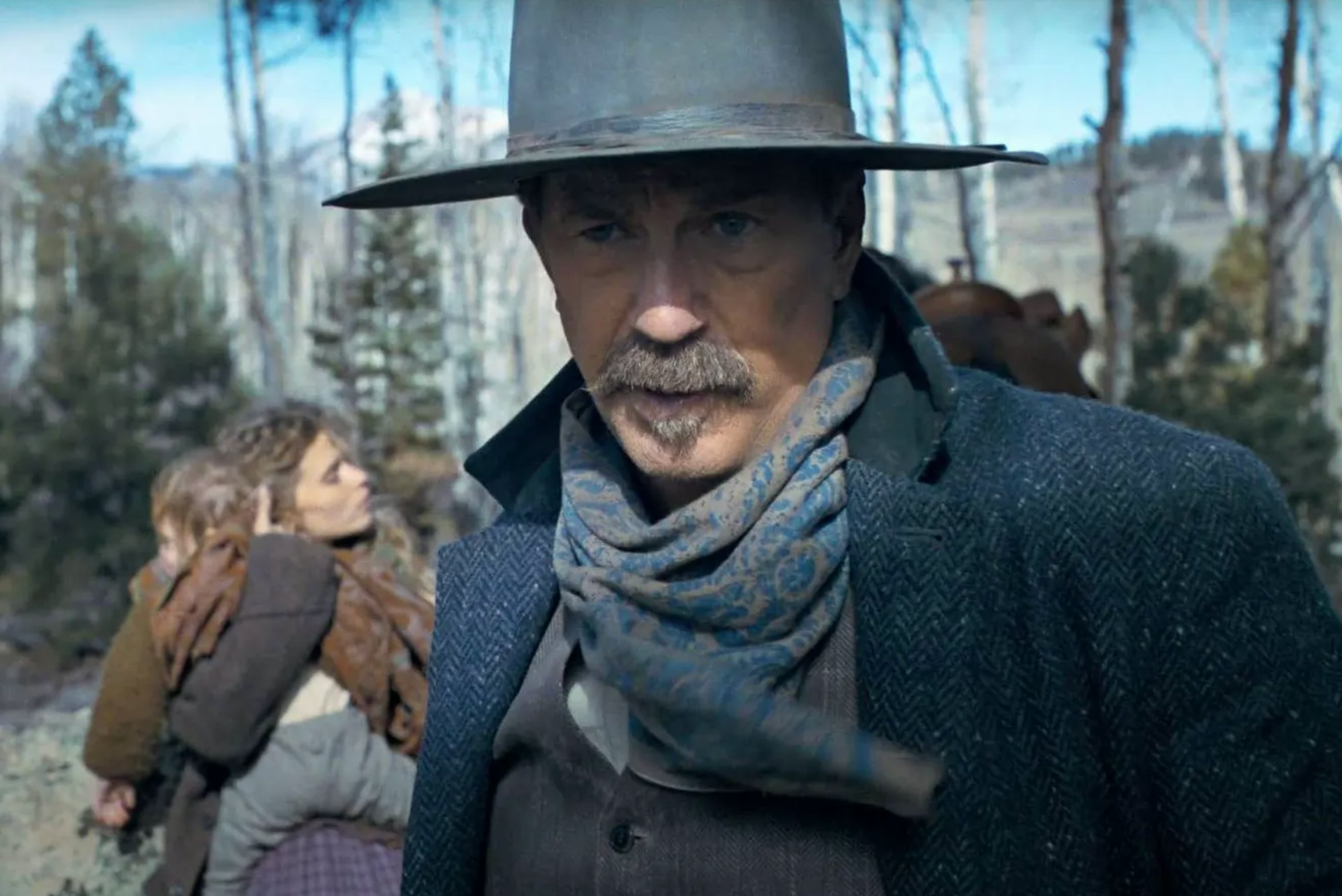
Is the big-budget Western officially dead?
The question has haunted Hollywood just about every decade since the once-ubiquitous genre dried up more than 50 years ago. But it might finally have a definitive and dour answer thanks to Kevin Costner’s Horizon: An American Saga – Chapter 1. Made for a reported $100 million, the sprawling and ambitious epic earned just $11 million over its first three days in theaters, effectively putting the blockbuster Western, one of the most dominant and durable kinds of films throughout history, to sleep.
Except, this poorly-reviewed flop won’t be leaving the discourse anytime soon. As its title implies, Horizon is the first of a proposed four-movie adventure, with the second installment due this August and the third already reportedly in production.
“There's a big economic risk,” Box Office Pro editorial director Daniel Loria tells Inverse. “What happens at the box office with this movie will dictate what happens with the other Horizon movies.”

That’s disappointing, mostly because Horizon feels like one long, disjointed prologue. The sprawling movie takes place in 1860s America and follows about five occasionally intersecting storylines that include settler families, Union armies, sex workers, and Apache tribes. Set against gorgeous vistas and familiar red-rock backdrops, Costner’s movie feels like three hours of painterly setup without any of the payoff.
It’s all a bit ironic. Despite its big-screen ambitions (and despite Costner’s decision to depart Taylor Sheridan’s Yellowstone after four seasons), Horizon’s primary criticism has revolved around its structure, which resembles serial television rather than a multi-part saga. In addition to its squared aspect ratio and choice to introduce new characters two hours into its run time, the movie’s ending (a five-minute montage of clips presumably from the second chapter) effectively mimics a “Next Week On Horizon…” teaser, promising Costner’s subsequent movie will be worth the wait.
Maybe Horizon will gain legs throughout the summer, organically growing buzz for its own sequel that promises more action and narrative momentum. But the more likely scenario is that Costner’s double-barrelled misfire closes the book on the genre’s studio-backed aspirations, relegating it to streaming television and independent, prestige projects.
“It's possible Kevin Costner was influenced by the idea that there was a larger appetite for a serial Western narrative,” says Andrew Patrick Nelson, Chief Curator of Western Spirit, Scottsdale's Museum of the West, before offering another explanation. “He feels duty bound to tell the story of the nation’s founding to a new generation at whatever cost.”

If there was anyone seemingly destined to revive the big-budget Western from obscurity and bring mass audiences back to the American frontier, it’s Costner. Since he showed up in 1985’s Silverado, won a string of Oscars for Dances With Wolves five years later, and then put modern wrinkles on Wyatt Earp and Open Range, the grizzled actor has become a symbol of American manifest destiny, the undeniable face of the genre. Within the last decade, he doubled down on that designation, evident in his miniseries Hatfields & McCoys and his multi-season role in Yellowstone.
Costner’s movies throughout the 1990s influenced a string of mainstream and independent Westerns — most notably Unforgiven and Tombstone — and gave the genre a shot in the arm. But as younger audiences entered the multiplex and as the Marvel machine began to boom in the late 2000s, big studio Westerns became harder to market.
“In terms of big-budget popcorn flicks, there haven't been too many genres with cross-quadrant treatment ever since the emergence of legacy IP sequels, like Mission Impossible or superhero films,” Loria says. “Not too many genres have been able to break out of that.”
Over the last decade, the Western has operated on auteurist budgets or migrated to television. Its flickering torch has been carried by Quentin Tarantino, Kelly Reichardt, Jane Campion, Martin Scorsese, and the Coen Brothers at independent studios and streamers whose financial stakes and awards hopes are considerably less impacted by dynamic opening weekends. The Western has also reverted to its mid-century roots, finding dedicated audiences on television (in addition to Yellowstone and its spin-offs, there’s also HBO’s Westworld and Netflix’s Godless) where its longer narratives feel like a more natural fit.
“There is a long tradition of folks consuming Western stories in the home, and I think that points to the vibrancy of the genre,” Nelson says.

As much as Costner would like Horizon to perform in major cities and attract Marvel-raised crowds, the movie is only surviving in the margins. In a recent Deadline breakdown, the movie’s best performing locations were all non-traditional markets — small towns in Utah, Texas, Arizona, and Oklahoma — made up of older audiences. More than 60% of ticket buyers were over age 45, and 47% were over 55, according to PostTrak exit surveys.
“The Western has kind of receded back to where it was before the ascendancy of the A-picture in the late 1930s,” Nelson says, “where only particularly rural demographics tended to like Westerns.”
At a time when attracting theatrical audiences is as tough as it’s ever been, Horizon doesn’t even hold the distinction of playing in premium format theaters (such as IMAX) that could have been a bigger incentive to draw audiences out of the house. In other words, simply plopping a big Western in theaters no longer works, and it hasn’t for a while now.
“It's not enough people for studios or networks to want to roll the dice on a large-scale Western series” Loria says.
But then again, as Loria readily admits, this isn’t the first time Hollywood has tried to write off its oldest and most reliable genre. And it probably won’t be the last.
“The Western has died a million deaths in this industry.”







